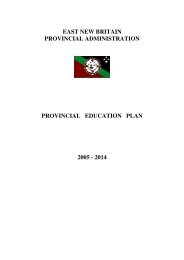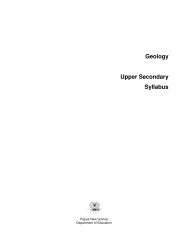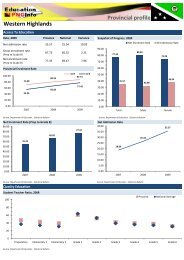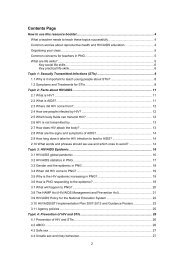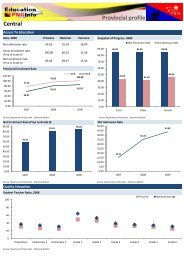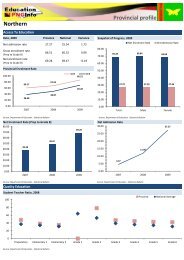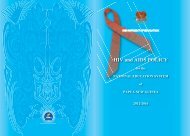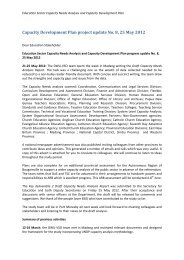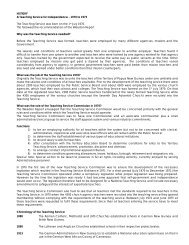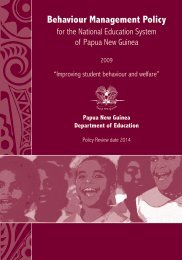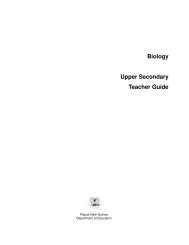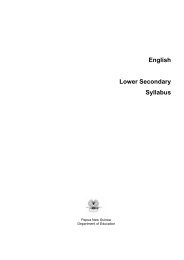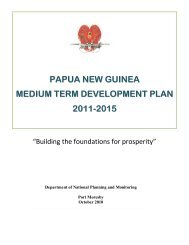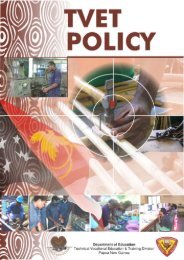Physical Education - Department of Education
Physical Education - Department of Education
Physical Education - Department of Education
You also want an ePaper? Increase the reach of your titles
YUMPU automatically turns print PDFs into web optimized ePapers that Google loves.
<strong>Physical</strong> education<br />
Assessment and reporting<br />
Assessment<br />
Assessment is the ongoing process <strong>of</strong> identifying, gathering and interpreting<br />
information about students’ achievement <strong>of</strong> learning outcomes. At Lower<br />
Primary, assessment also needs to take account <strong>of</strong> the bilingual nature <strong>of</strong><br />
teaching and learning. All assessment must link to the learning outcomes.<br />
Teachers need to apply processes for assessment. Recording and reporting<br />
enables them to determine which learning outcomes students have achieved<br />
and to report these achievements to parents in ways that make sense to<br />
them. The processes teachers use to assess, record and report students’<br />
achievements need to be manageable. Schools may decide to plan together<br />
on a whole school basis to share good assessment practice, and to develop<br />
manageable assessment and reporting systems.<br />
Students need to receive meaningful feedback about their achievement <strong>of</strong><br />
learning outcomes. This can best be done using continuous assessment.<br />
The students’ knowledge and skills are continually developing in a healthy<br />
classroom environment. It is important for teachers to be aware <strong>of</strong>, and<br />
record, what the students know and what they can do. When teachers have<br />
this information, programming can be made more purposeful. It can be<br />
directed at learning weaknesses and matches the students’ needs.<br />
Criterion-referenced assessment<br />
The approach to assessment that best aligns with an outcomes-based<br />
approach is criterion-referenced assessment.<br />
Criterion-referenced assessment uses specific assessment criteria derived<br />
from the learning outcomes to judge a student’s individual performance. It<br />
does not compare the performance <strong>of</strong> one student with another. This means<br />
that all students can demonstrate learning against individual criteria and all<br />
can find success against one or more criteria.<br />
Unlike norm-referenced assessment, it is not used to rank students. It is<br />
used to determine what each student has learnt from the learning outcomes<br />
in terms <strong>of</strong> knowledge, skills and attitudes. All <strong>of</strong> the assessment methods<br />
described on pages 12 to 15 use this approach.<br />
11



